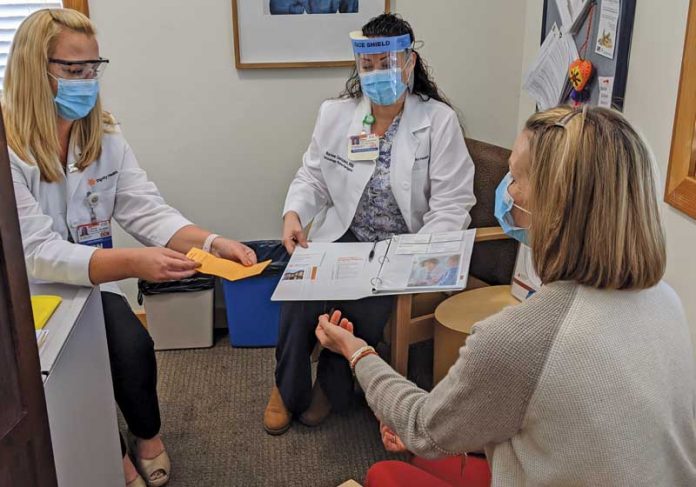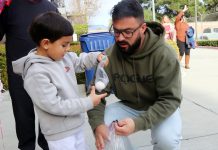
According to the American Cancer Society, breast cancer is the most common cancer diagnosed among women in the United States, and the second leading cause of cancer-related death.
Breast cancer occurs when cells in breast tissue change and divide, resulting in a lump or mass. As there are typically none or very few symptoms at first, regular breast screenings and check ups are vital in prevention.
October is Breast Cancer Awareness Month, and the Katz Cancer Resource Center (KCRC) at Dominican Hospital is promoting the importance of regular screenings. They work closely with the Dominican Breast Center, which offers the screenings and exams, and aim to educate both patients and the public.
“Screening for breast cancer is vital,” said Oncology Certified Nurse Renee Aispuro Gonzalez. “The goal is to catch things early. A lot of times, the cancer is curable.”
While most start regular screenings at age 40, KCRC recommends that younger people be vigilant—especially if they have a family history of cancer or other genetic abnormalities. And though they only make up 5% of cases, men can be diagnosed with breast cancer, too.
Gonzalez also recommends that people learn how to perform a self-exam. There are many resources online on how to do so.
“It’s a good way to know your own body,” she said. “I had a patient in her 20s—she was being told that the lump in her breast was just a cyst. She knew it wasn’t normal, and kept advocating for herself. It turned out it was cancer.”
Katy Pagliaro, clinical coordinator at KCRC, added that it is important for patients to not compare their cancer cases, as there are many different types.
“People will be given a diagnosis and go get information from other patients,” Pagliaro said. “But it’s really important not to compare… everyone’s experience is unique, so treatment and information will differ.”
Kathy Finnigan, manager of Oncology Services, explained that this is why cancer treatment has changed over time.
“In the past we treated cancer by location, by where it was in the body,” Finnigan said. “Now we’re treating it by people’s biological profile… by what is driving the cancer to change that person’s cells.”
Every October, the National Breast Cancer Foundation kicks off Breast Cancer Awareness Month, a campaign to raise awareness of the disease. Their website lists various resources and ways for people to help. The pink Breast Cancer Ribbon has become a universal symbol of the disease and a way for people, businesses and agencies to spread awareness and raise money.

The Watsonville Police Department has launched its Pink Patch Project Campaign, with proceeds benefiting KCRC. The patches will be available to the public for $10 at its lobby Monday-Thursday from 9am-4pm.
“The Watsonville Police Department has been very helpful in raising funds,” Gonzalez said. “They are a great ally.”
KCRC also acknowledged the Dominican Hospital Foundation, who have aided them year-round in providing grants for patients with special needs.
“It’s all about education,” Finnigan said. “When people have a better grasp of what’s going on, and they know there’s someone who will support them, it reduces their anxiety.”
The Katz Cancer Resource Center is complying with local and statewide Covid-19 guidelines, including temperature checks, masks/face shields and social distancing, as well as rigorous sanitization. Visits to the center are by appointment only. For information, call 462-7770.
To schedule a breast cancer screening, call the Dominican Breast Center at 476-7711. Watsonville Community Hospital (761-5626) and Sutter Health (458-5521) also offer screenings and support.











